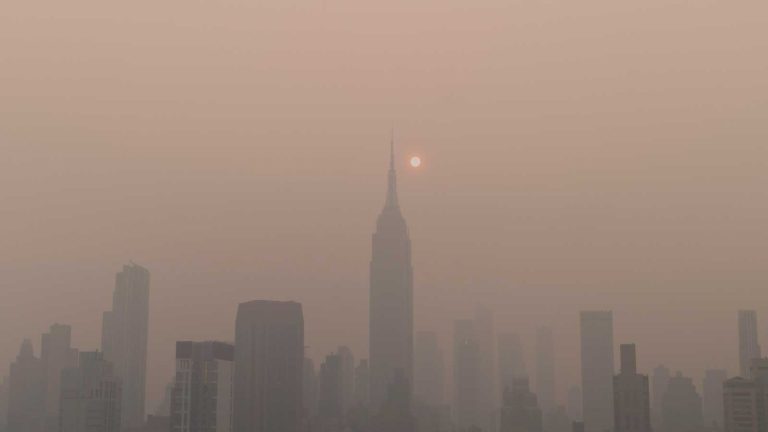Climate change is exacerbating heat waves, hurricanes and wildfires. Which danger affects you the most depends on luck and geography. One of the increasingly worrying impacts in western North America and beyond is wildfire smoke.
This smoke isn't just a nuisance. It also poses a major threat to many aspects of health – not just humans, but the atmosphere, animals and plants. These articles can help you understand what the risks are, why they are risks, and what you can do to reduce them for yourself and your family. They may also surprise you with smoke effects you may not have thought of.
Overview
global picture
specific health effects
- “New study finds wildfire smoke inhalation may increase dementia risk.” Christopher Teague. The focus is on wildfire smoke and agricultural air pollution centered in the upper Midwest.
- “Are wildfires linked to depression? How smoke affects mental health. Adrian Mattei, The Guardian. There is growing evidence that such smoke can impair cognitive function and lead to depression and anxiety, and Go above and beyond what is usually recommended.
- “As extreme fires increase, California scientists focus on smoke's effects on pregnancy and children.” Emma Foehringer Merchant, Inside Climate News. Interesting research is ongoing on the effects on pregnancy and birth outcomes.
- “Study: Smoke particles from wildfires erode the ozone layer.” Jennifer Chu, MIT News. Describes a study by Susan Solomon et al. published in Nature (paywall) on the expansion of the southern ozone hole following Australia's devastating 2019-2020 fires. Although not mentioned in this article, ozone holes increase the risk of skin cancer and cataracts in humans.
- Smog also contributes to health-threatening surface ozone and smog in many parts of the western U.S.: “'We're just treading water': Ozone, smog and haze continue to plague Coloradans despite climate change efforts.” Shah Lang Oudasin, “Mountain”.
indoor air
Read more: Wildfire smoke entering your home? DIY Corsi-Rosenthal Air Filter.
plants and animals
- “Trees don't like breathing wildfire smoke either, and they'll hold their breath to avoid it.” Delphine Farmer and Mj Riches, conversation. There is another effect that is not obvious, but does make sense.
- “Wildfire Smoke: New Threat to West Coast Wine.” Lisa Gross, Inside Climate News. Take California and Australia as examples of how smoke changes the taste of grapes and wine. Oddly, “Grapes appear to be the only commodity affected by smoke pollution.” To add to the concern for field workers, read “Wildfires are increasing under climate change, and their smoke threatens farm workers, study says.” More Lani Pineda, The Associated Press.
- “How does wildfire smoke affect wildlife?” Braelei Hardt, National Wildlife Federation Blog. Known and suspected effects on health and behavior are well illustrated.
- “Wildfire Smoke and Animals.” American Veterinary Medical Association. What to look out for and how to protect pets and livestock.
We help millions of people understand climate change and what to do about it. Help us reach more people like you.
